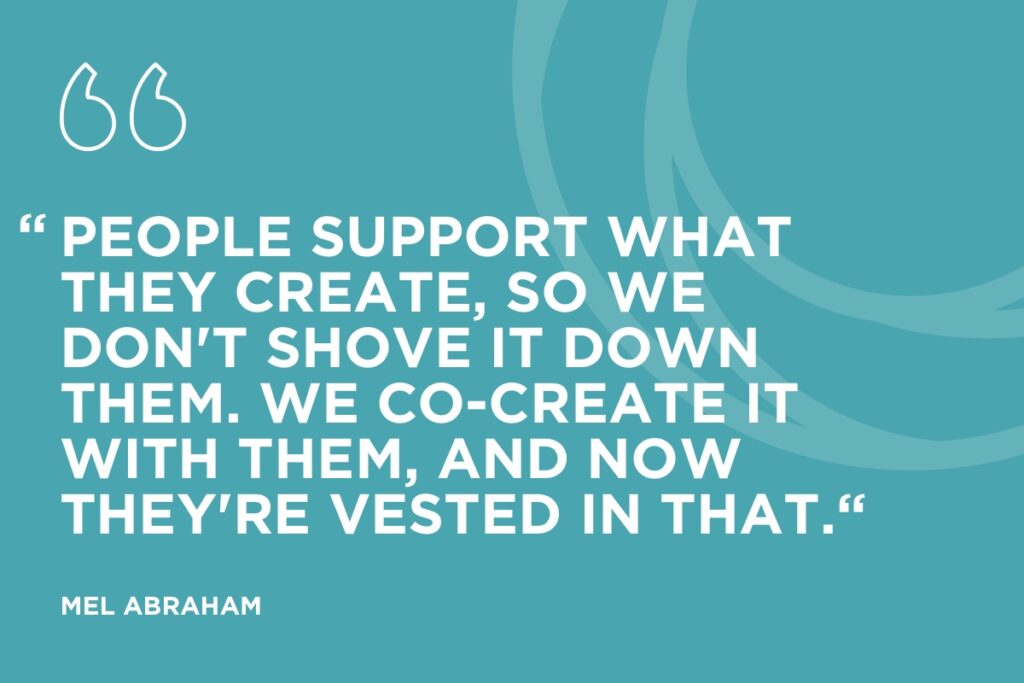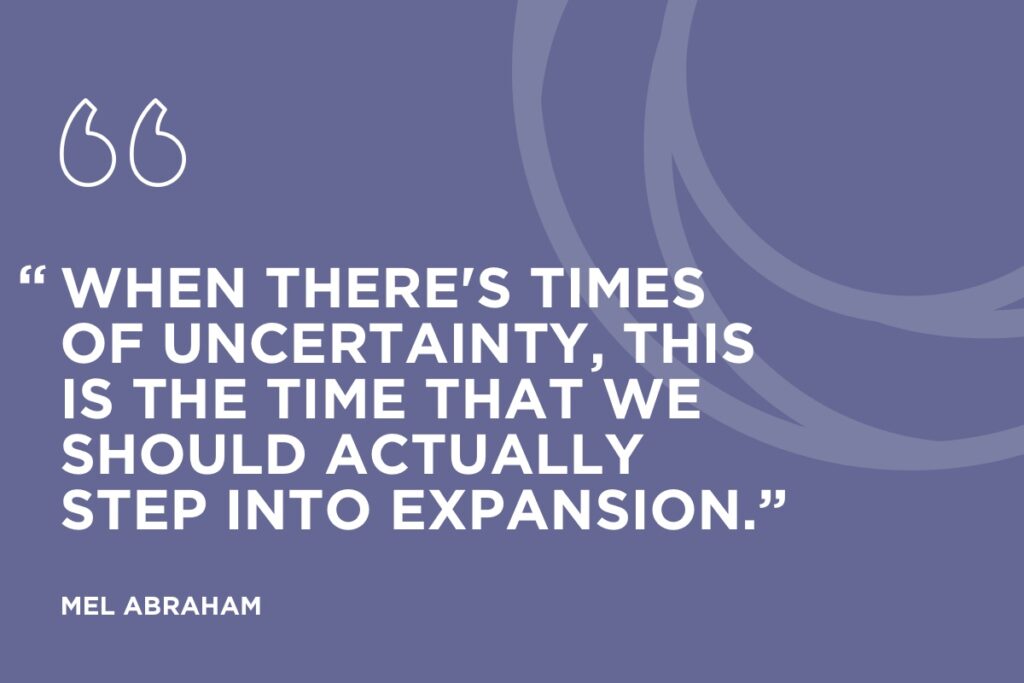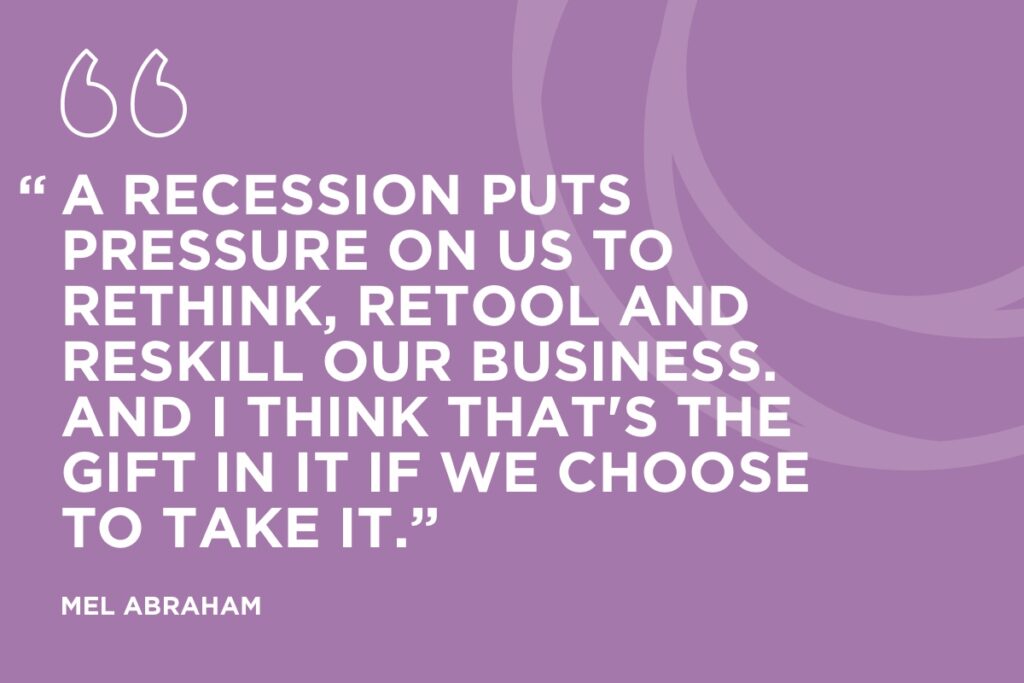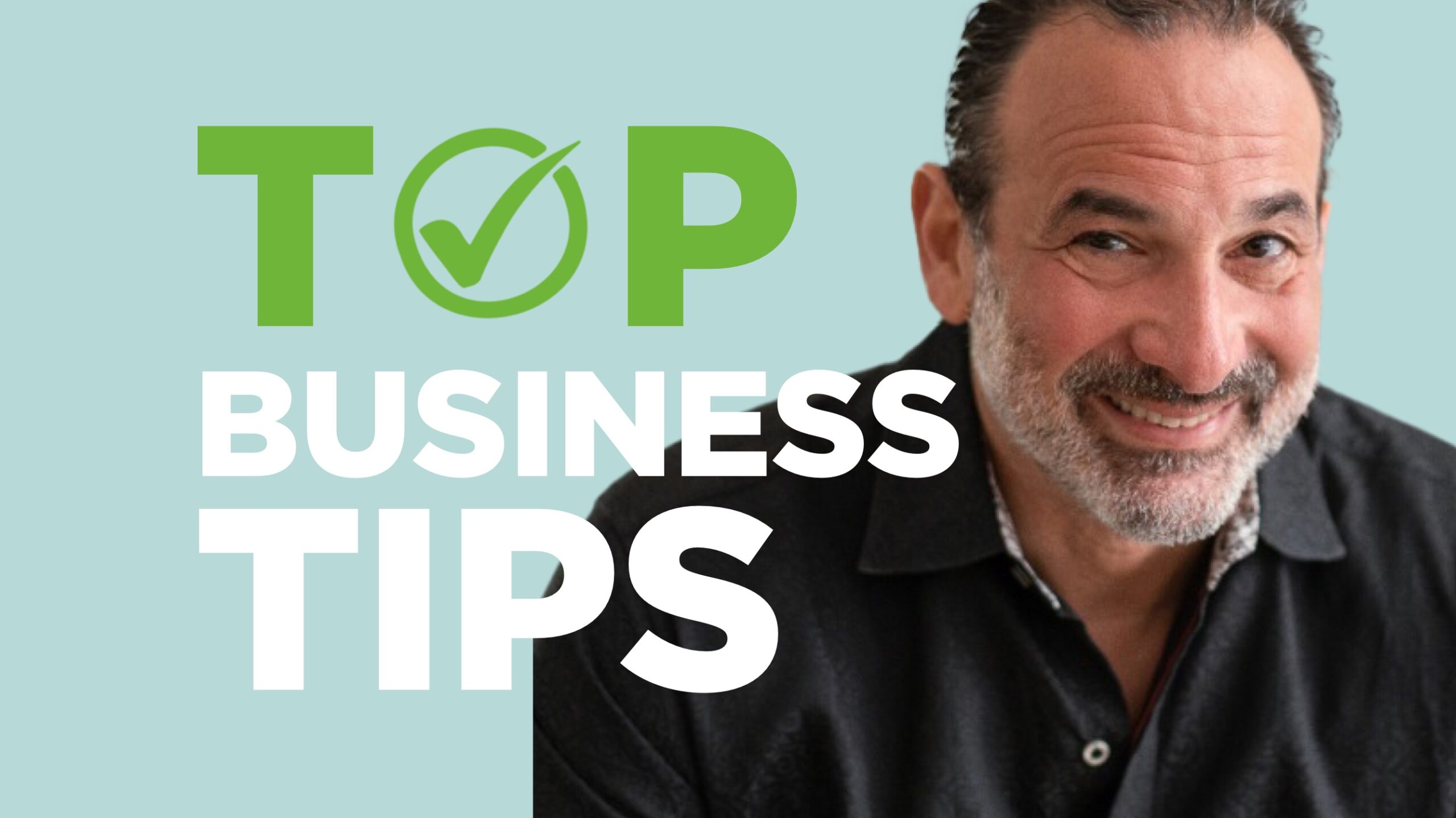Today’s guest learned how to build a business from nothing. After a partnership, the breakup left him with no clients, no cash flow, and no work backlog, and almost a half a million dollars in debt. He spent most of his early career obsessing about understanding what drives business success, but more importantly, how to create a life by design through entrepreneurship and business. Today, he helps business owners and entrepreneurs build meaningful businesses so they can have more profit fans and freedom. Please meet Mel Abraham!
Let’s start by talking about what small businesses can do to prepare for and protect their finances during a recession or a potential market downturn.
Mel stated during the Scale Your Small Business podcast that we’re technically in a recession, so we need to operate in it. During fat times, we get” fat” and “lazy”. We spend money in places that we don’t need to spend it and we’re not as concerned. In a recession, it becomes really important to look at every dollar going out to see what the return on that dollar is. In other words, for every dollar going out, I get a bunch of dollars back.
The other way to look at it is, am I getting a return on an investment in the currency of time or in efficiency? For example, if you hire someone and it gives you 10 hours more back to you a week or a month and you can use those 10 hours for revenue generating activities indirectly, that has an roi. Too often we don’t think about that. Another example is a dollar going out to create efficiency. In other words, you’re bringing in a process to eliminate the manual work to get things done faster, easier, and more consistently.
One of the first things we should be doing is spending time with our credit card statements and our profit and loss statements. If you aren’t good with reading financials, now is the time to do it. Take a look at everything that’s going out and make sure that it makes sense and that it’s bringing something else in.
Have these conversations with your team. Enroll them in the process and give them the ability to impact the process. They probably won’t have the same vested interest as you will as an owner, but we can adjust their compensation structure to hit on those points where they start to think a little more like an owner. Get your team on board to create an optimized organization, optimized business, and think through the eyes of impact and profits. Things will then start to shift, because you have everyone in the boat rowing the same way.
Every person on your team should have what Mel calls a “PRI metric”. When they perform on that metric it will translate into something better for the business and better for the bottom line. For example, Mel brought on a social media person to create posts, they were hitting the posts like they were supposed to check in the list, but it was the wrong metric because we can post a hundred times a day and it doesn’t drive anything other than the posts. What we really had to look at was the actual metric to measure that person by, which was follower, growth and engagement. We started to look at what we wanted to achieve in a quarter for follower growth and engagement. We then got their buy-in. People support what they create. We don’t shove it down them. We co-create it with them, and now they’re vested in that. Now we have something that drives that metric and we can evaluate it against that.
I know that if my follower growth goes up the engagement goes up, and then the likelihood is that my list is building. Ultimately, at some point when we turn around and do some sort of campaign, our promotion should then generate a greater level of sales because we have a greater and deeper relationship with the people that came in.
Mel admitted that he’s made a lot of mistakes with respect to running businesses and building wealth. He’s noticed that when things get uncertain or when things become challenging, the tendency is to be a myopic. The tendency is to shrink down, curl up in a fetal position and hold on until the storm passes. The problem is that it doesn’t serve us in the long run. When there’s times of uncertainty, this is the time that we should actually step into expansion. When we know that there are three other people in the room having the same problem, we can actually have a real dialogue about it. What have you tried? What is going on? What’s next? I’m gonna try this, what about this?
When we have community, we can find some solace and peace in knowing that we’re not alone. It also provides a sounding board that allows us to bounce ideas, massage ideas, and check perspectives that maybe we wouldn’t otherwise have if we’re siloed. It allows us to share and look at a problem and know that what we’re feeling is normal. A community also creates networks. If we’re sitting in a closet somewhere scared, then we’re not going to move. Rather than be scared, we need to be prepared and we can start moving forward.
We’ve all faced things as business owners. If you haven’t yet, it’s coming. Being in a community is huge. It gives you the ability to reach out and say, “Hey, just so you know this pitfalls there, make sure you just jump over it. Don’t fall in it like I did.”
Mel believes it really is possible to grow our businesses during market downturns and recessions. Many companies were started during recessions, FedEx, Uber, and Disney for example. Why is that? When we start getting our back pushed against the wall, we start to refine our thinking. We start to say, “Well, what if I were to recreate something and look at things differently based on the fact that things are different? What would I do differently?”
These downturns are necessary according to Mel. They’re cycles in business. They force us to be introspective and look at how we do business. They force us to look at why we do business and how we can do business, money and wealth differently. When we do that, there’s nowhere to go but to grow. If we hold on tightly to the way things were, then we will go down. Look at what happened to Blockbuster Video. When we get complacent and believe that we are infallible, it’s the first step to a crisis. The next step may be the grave. A recession puts pressure on us to rethink, retool and reskill our business and that’s the gift in it, if we choose to take it. Many businesses are very successful because of that thinking.
There was an Italian study in 2016/2017 of 116 entrepreneurs. They brought people in that were starting a business, and put them through a three to four month training program. They then split them. 50% of them were trained just in the traditional business principles and the other 50% were trained in the same principles, but we’re also taught a professor’s or scientists mentality. They were told that the strategy that they’re creating was simply a thesis. It was simply to be a hypothesis so that when they went to market, it was simply there to test. What they found a year later was that the ones that were trained in the scientist and professor type of thinking, the thesis thinking, had their revenues 40 times greater than the control group. They were two times more likely to pivot. They didn’t allow their ego and their belief to get in the way. When we look at things with curiosity and come to it with humility instead of pride we will be successful over time.
Mel’s biggest piece of advice is to find a coaching program, a mentorship, a mastermind, or a community where you can share your pain, frustration and fear. You want to be able to talk it through and move through it. You might be running a restaurant, but there might be someone that is a mechanic that can bring you a new perspective. Believe it or not, when you bring in perspectives from other industries, it helps you to see the blind spots that maybe you didn’t see before because you’re inside the bottle and you can’t read the label. It starts to move you faster because what it requires you to show up with is the humility and understanding that you don’t know it all. It’s not about beating yourself up, it’s about taking the lessons from those and moving forward.
It’s not about the setback, it’s about the comeback!
As small business owners, we are literally changing the world. When we work together it is even more of a massive change that we can create. Jumping into a community with Mel Abraham would be huge!
Where can you connect with Mel?
Website Links:
Podcast: The Affluent Entrepreneur Show
Instagram: @melabraham9
Show Notes





